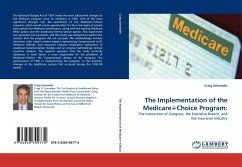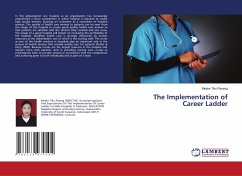The Balanced Budget Act of 1997 made the most substantial changes to the Medicare program since its inception in 1965. One of the most significant changes was the enactment of the Medicare+Choice program, which would create opportunities for four new types of private plan options for Medicare beneficiaries, along with the existing Medicare HMO option and the traditional fee-for-service option. This experiment was generally not successful, and this study was designed to explore the reasons that the program did not succeed. The methodology involves interviews with subject matter experts representing Congressional staff, Medicare officials, and insurance industry employees; exploration of analytical implementation models; and an original methodology termed assertion analysis. The research question that the study primarily addresses is what factor is most responsible for the problems of Medicare+Choice: the Congressional design of the program, the performance of CMS in implementing the program, or the dramatic changes in the healthcare system that occurred during the 1995-99 period.
Bitte wählen Sie Ihr Anliegen aus.
Rechnungen
Retourenschein anfordern
Bestellstatus
Storno








